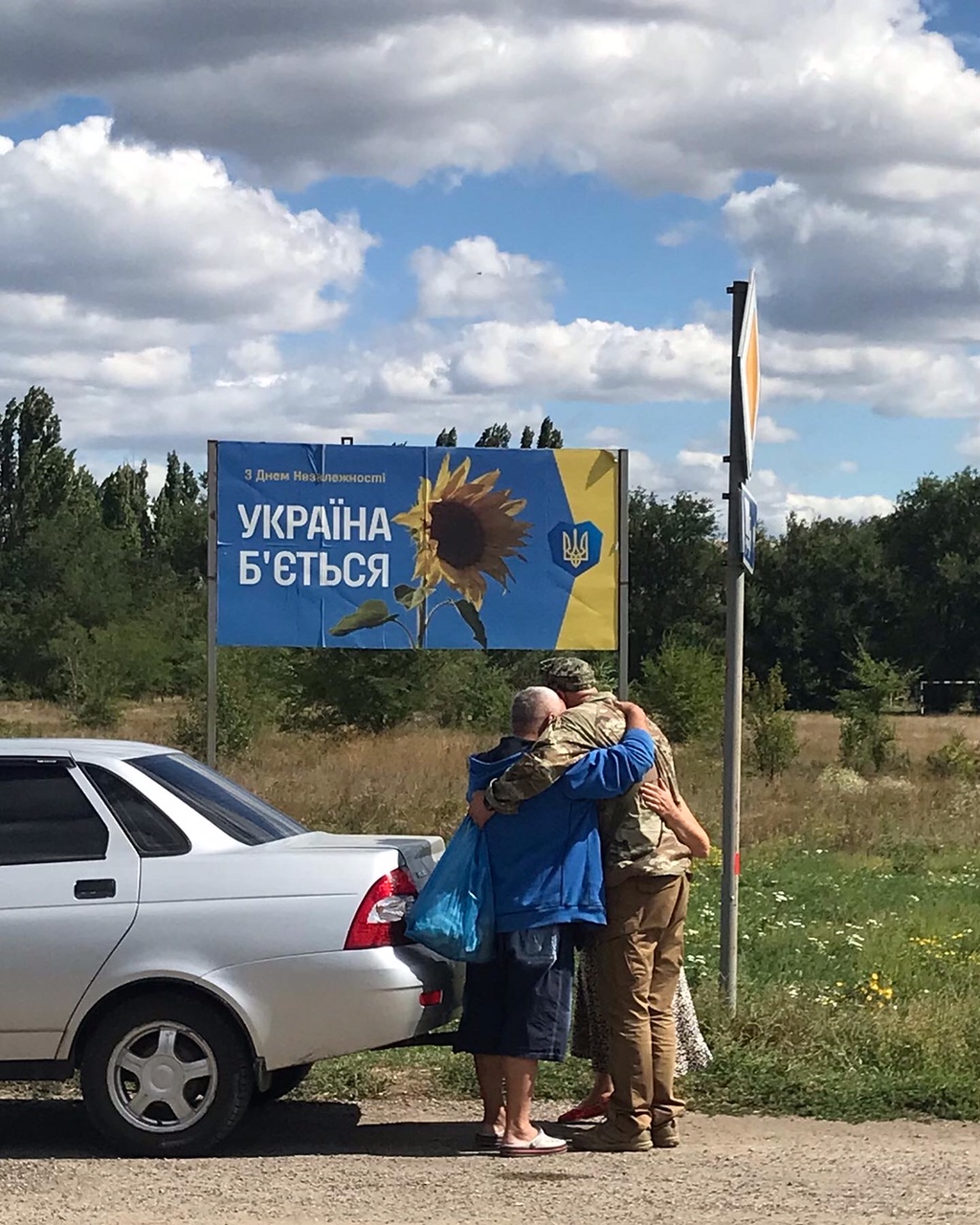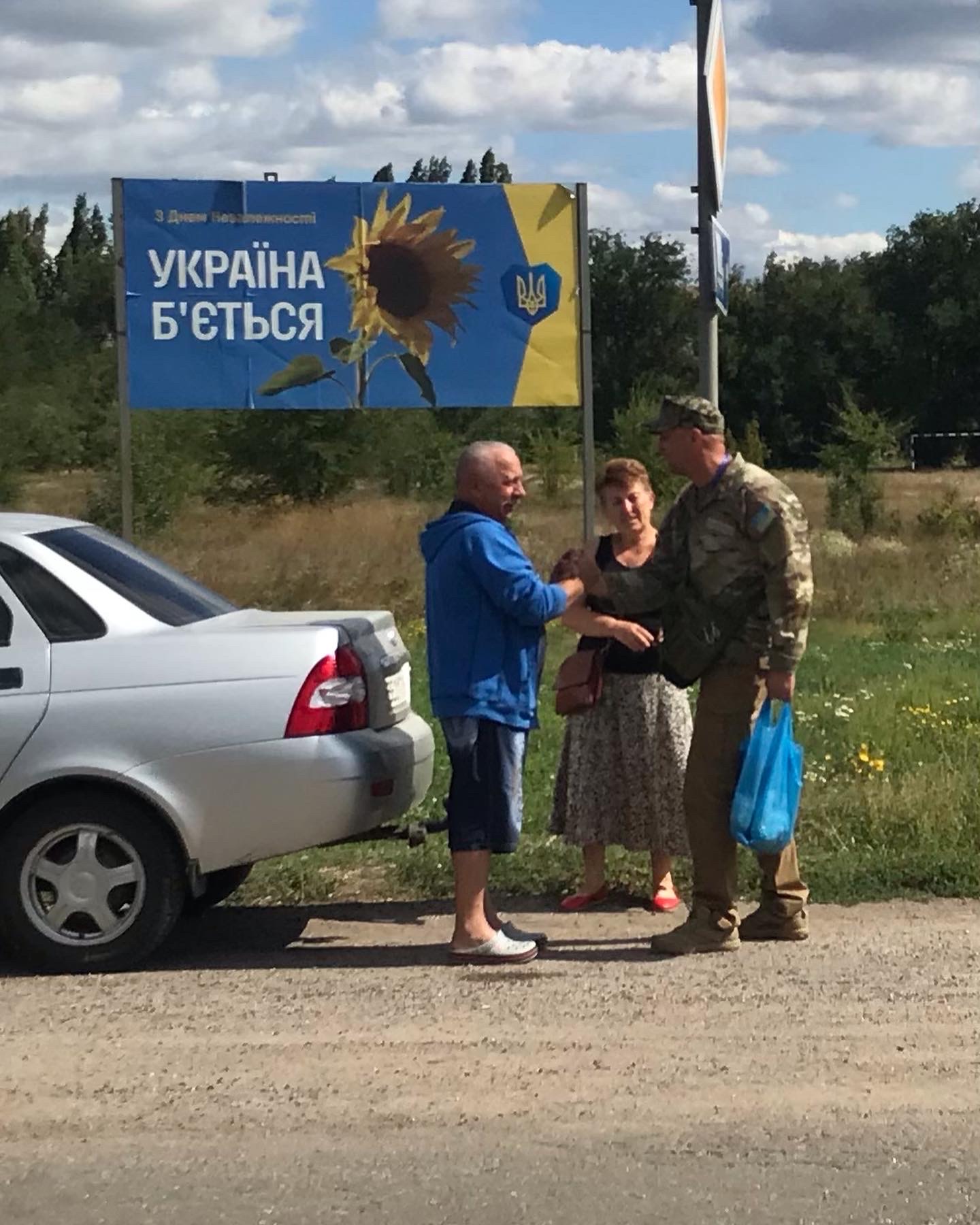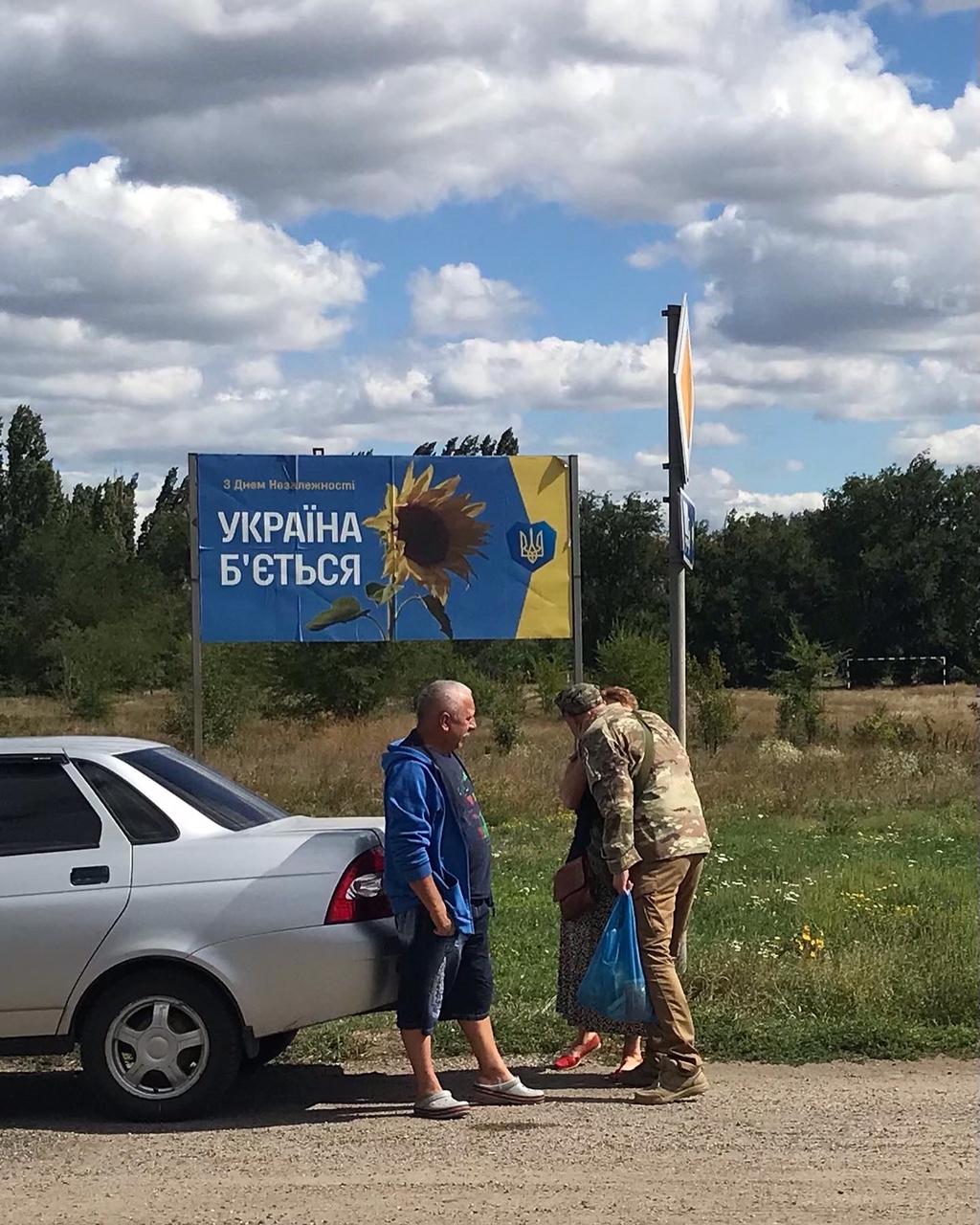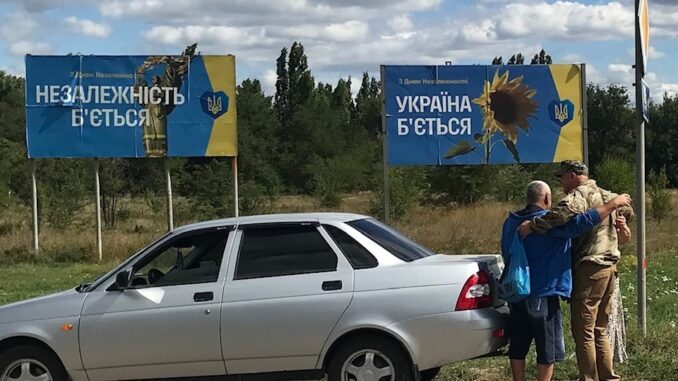
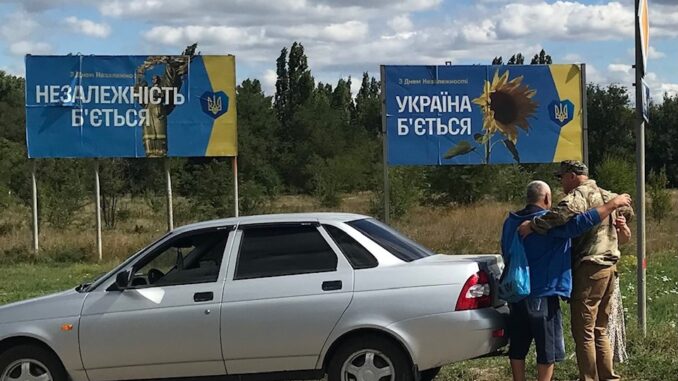
Note: Shawn Krest is embedded with a humanitarian aid group delivering food in the Ukraine. This is the fifth installment of his report on the experience. You can read the first four at
Keep on truckin’: First impression of Ukraine – The North State Journal (nsjonline.com)
Keep off the grass: Entering the war zone – The North State Journal (nsjonline.com)
A delivery to the front lines – The North State Journal (nsjonline.com)
Just about every adult Ukrainian male wears some type of military camouflage.
Some of them are former members of the military. Others are not. But, when your homeland is being invaded, the line between military and civilian tends to get blurred.
Many of the men wearing camo coming into and out of the church where we stay have already fought the Russians, earlier in the war. Some of them did so earlier this week. Dimitry* (not his real name) brought us to his house to show us the damage from a clash with Russian troops on his street, to see if we’ll be able to help him with some repairs in the near future.
For the men in the church, supporting our relief missions is their way to contribute to the war effort while the Russians are at a distance. But if they get close, most will have no qualms about taking up arms.
Hercules is one of those men. That’s not his real name—it’s our nickname for him after watching him carry food to our vans. He generally stands back to see how many boxes of rice or pallets of tomato sauce we each carry, then loading up twice as much for his load.
He has big soulful eyes and a bald head, giving the impression that he’s seen everything over his nearly 50 years of life. He wears fatigues with military patches and a name plate. We ask him if he used to be a soldier, but the translation software is imperfect and he answers that he was never in the army. “Sailor,” he adds.
Hercules has a wife and three daughters—two are young adults, while the other is a preschooler. He also has a grandson.
“They’re in Denmark,” he says. He sent them there at the start of the war and hasn’t seen them in more than six months. He has no idea when he’ll see them again. He shows us photos of the family in red clothes, posing with Santa Claus, because those are the most recent ones he has with him in them.
One day, we deliver in the direction of his hometown. Hercules rides in the passenger seat of our lead van, giving directions and helping talk us through military checkpoints.
His parents still live there, so we pack an extra bag of food for him to give to them. The bags contain packages of rice, oatmeal, macaroni and other starches, as well as tomato sauce and a variety of canned meats—from fish to pork to lunchmeat. We’re told each bag is enough to support a family for a month.
As we approach the town where we’re going to deliver, we see a small cluster of soldiers standing in a field. A number of military vehicles are parked on the side of the road, and when we enter the town itself, the streets are crawling with soldiers.
Hercules explains that Russians are in the area. There’s the possibility of a battle brewing. Tensions are high in our vans. Our goal is always to get in and out of a town as quickly as possible, but today, it seems more urgent than usual.
We weave our way through the sea of military vehicles and around to the rear entrance of the church that will be distributing our food to community members. We set up a line and quickly pass the boxes, bags and pallets from hand to hand, filling the front offices of the church building.
Everyone we deliver to is grateful for our willingness to make the trip, and the farther or more perilous the journey, the more it is appreciated. We’ve received countless hugs, kisses on the cheeks and blessings and thanks in a variety of languages.
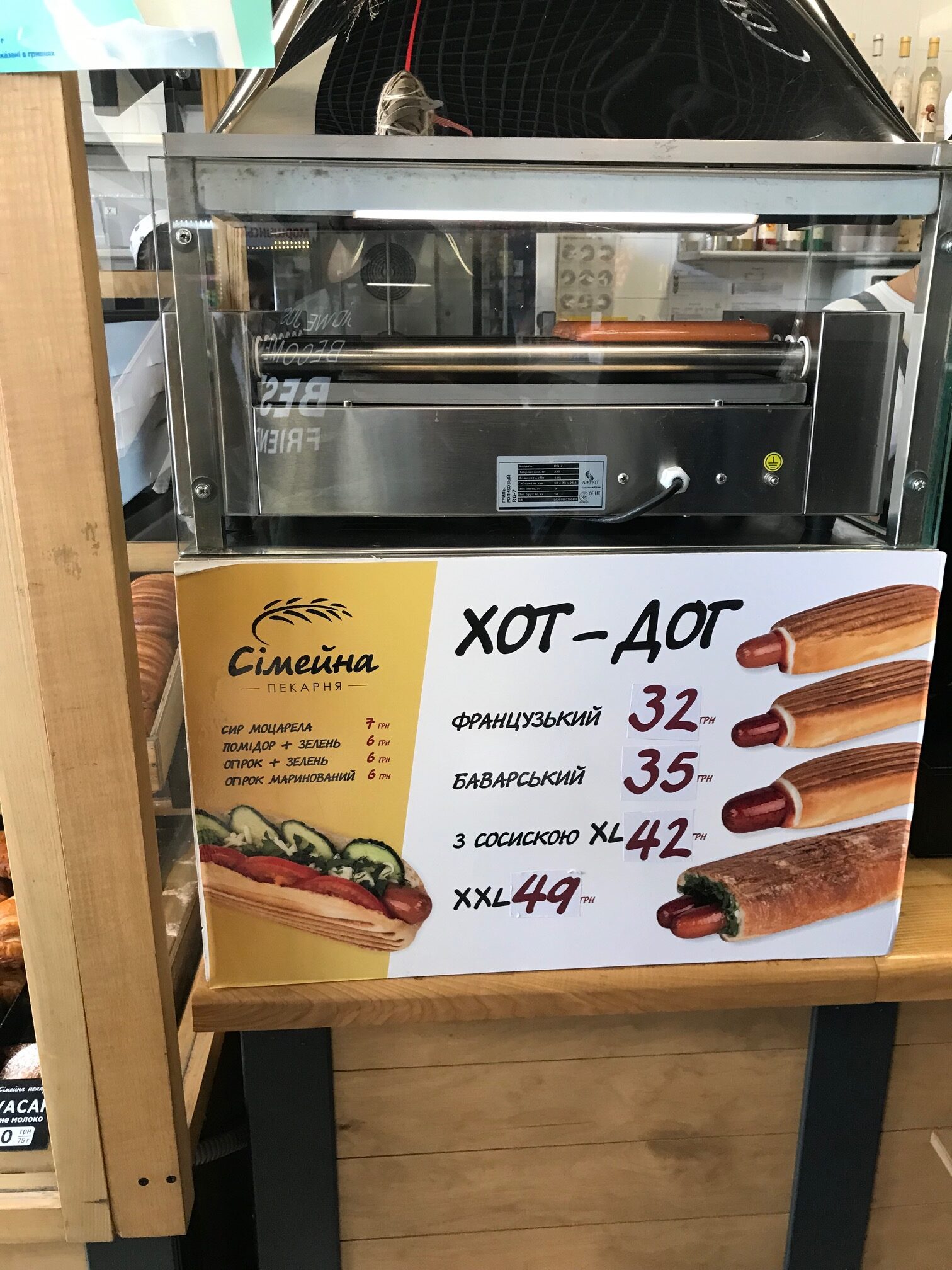 The recipients have something else in common—they want to give us something in return. Even though we’re bringing them food they desperately need, they insist on feeding us. One group took us across the street for Ukrainian hot dogs (which are wrapped in a panini filled with sweet ketchup, spicy mustard and mayo. Ukraine seems to be particularly proud of their hot dogs.)
The recipients have something else in common—they want to give us something in return. Even though we’re bringing them food they desperately need, they insist on feeding us. One group took us across the street for Ukrainian hot dogs (which are wrapped in a panini filled with sweet ketchup, spicy mustard and mayo. Ukraine seems to be particularly proud of their hot dogs.) 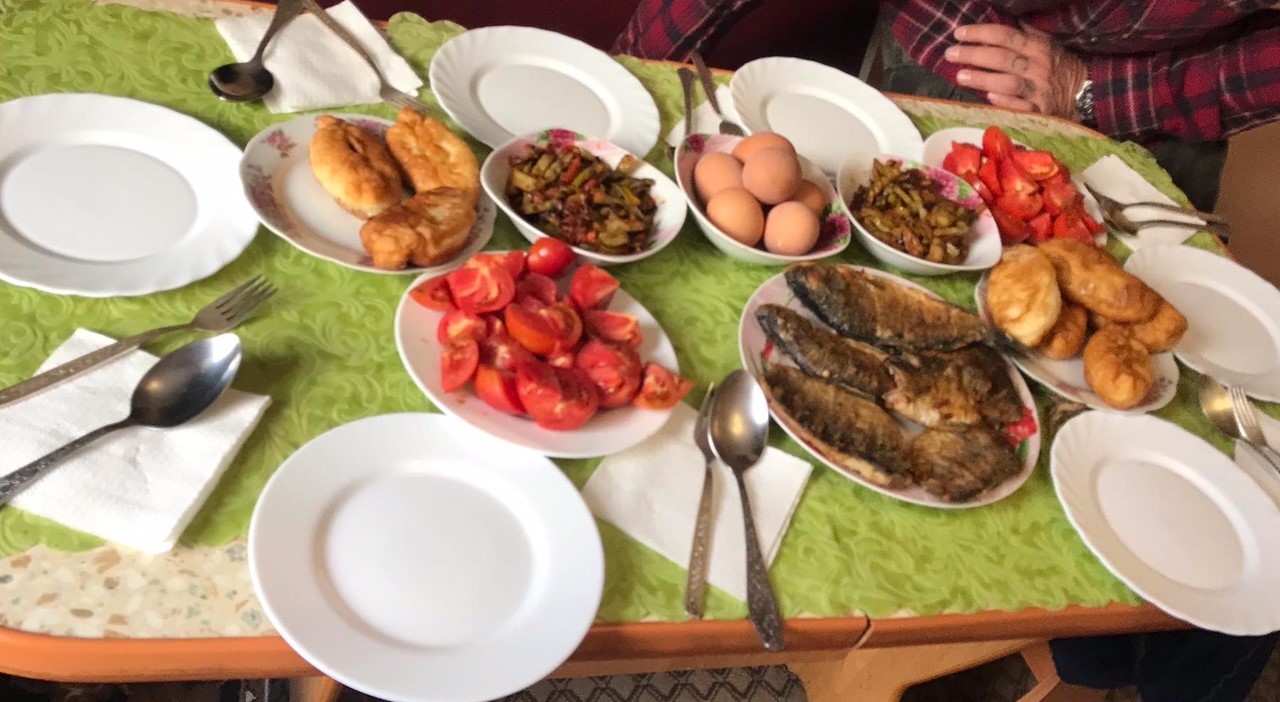 One day, we made several deliveries and were given full meals at each stop, eating two breakfasts and two lunches before 2:00 PM
One day, we made several deliveries and were given full meals at each stop, eating two breakfasts and two lunches before 2:00 PM
The church group in this town, under the shadow of Russian invaders, doesn’t have much, but they want to make us coffee. They find a plate of store-bought sugar cookies and start the coffee maker.
We all want to leave and head away from the brewing trouble, but they’ve asked us to stay, and this part of the ritual is as important to them as the food they’ve received. So we let them thank us.
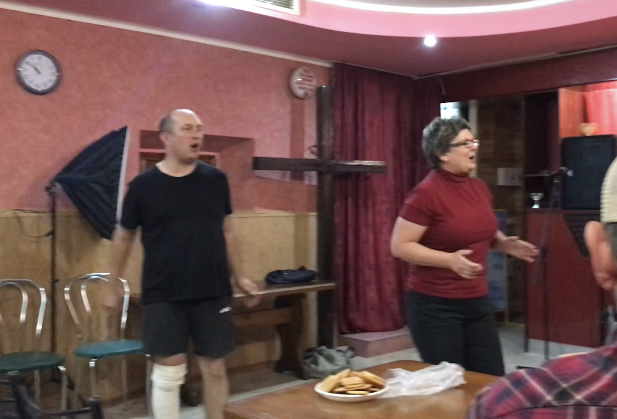 They seem to realize that the time is dragging by as the coffee begins to percolate, so a church member retrieves his guitar. They play a peppy song with Ukrainian words, filled with “hallelujahs”. When they finish, we clap, but they are disappointed that we didn’t recognize the tune. Apparently, it’s a popular Christian artist in America.
They seem to realize that the time is dragging by as the coffee begins to percolate, so a church member retrieves his guitar. They play a peppy song with Ukrainian words, filled with “hallelujahs”. When they finish, we clap, but they are disappointed that we didn’t recognize the tune. Apparently, it’s a popular Christian artist in America.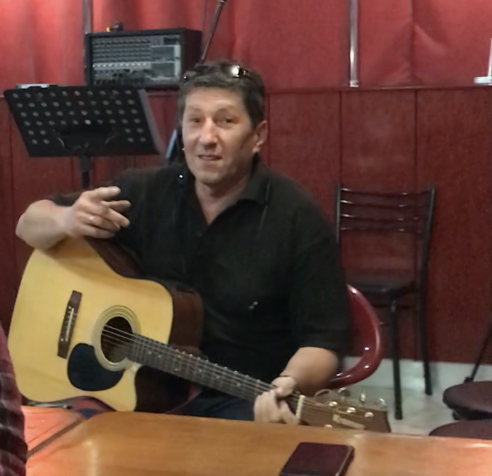
They want to play us a song we know, so next, they play Amazing Grace, singing the lyrics in their home language. It is haunting and beautiful as we huddle in the church room, with potential chaos waiting outside, and are serenaded by this hymn.
After our coffee, we pull out of town and stop by the side of the road. Hercules’ parents have made the trip from their nearby town and pull up after a few minutes. He greets his elderly mother with a hug, hunching over to envelop the small woman.
He puts the bag of food in their car, and his father pulls out a smaller bag to give to him. They’ve brought him food as well, a large bunch of grapes that he later shares with us in the van. Even as they make the trip to get their rations, they have to bring something for their little boy.
Finally, he gives his father a hearty handshake and another hug to his mother. Then the three of them throw arms around each other in a huddle and hug one last time.
He returns to the van, dry-eyed, and we head silently toward safety.
